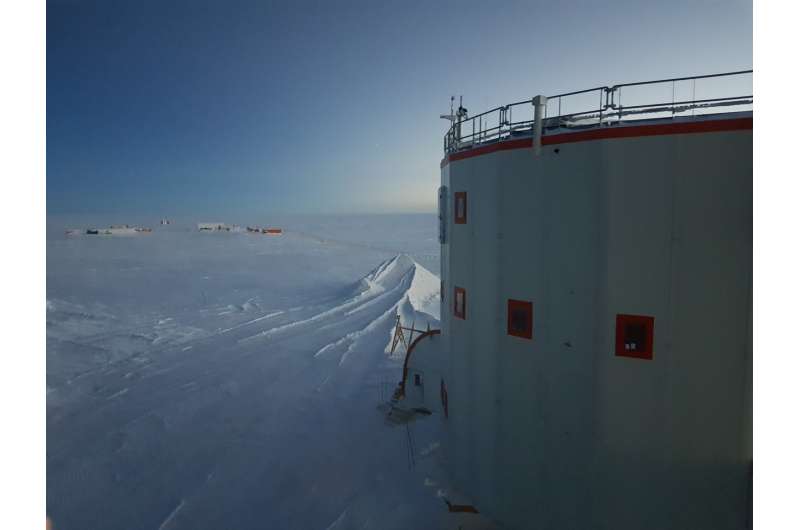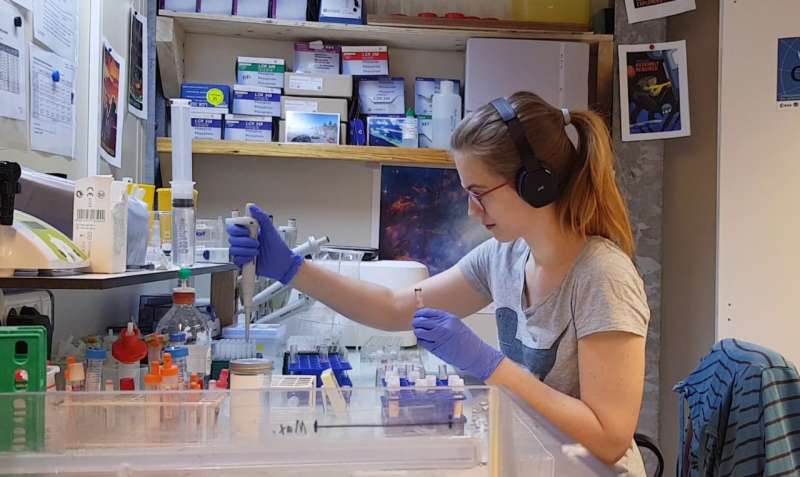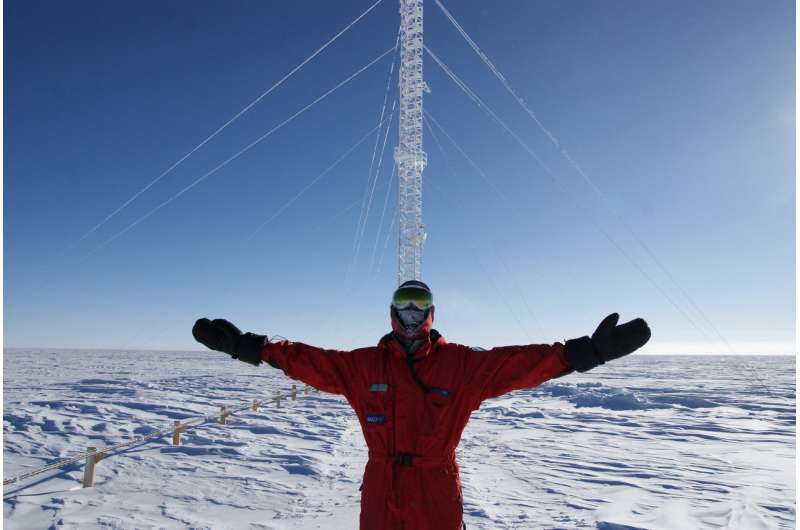Concordia station. Credit: ESA/IPEV/PNRA–C. Possnig
As the Northern hemisphere starts to feel the cold winter approaching, research stations in Antarctica are emerging from their long dark winter and awaiting the arrival of fresh supplies after living months in isolation.
A truly unique experience, ESA is calling medical research doctors to spend a year on the ice conducting research into how humans adapt to living in extreme environments – as a stand-in to spaceflight. Do you have what it takes?
The French-Italian Concordia research station in Antarctica has to deal with temperatures as low as –80°C, no sunlight for four months and no access at all during the winter, it is one of the most remote and isolated human outposts. Its unique location and extreme conditions offer ESA the chance to research how humans adapt to living far away from home – similar to an outpost in space or on another planet.
ESA's current research doctor in the South, Carmen Possnig, is acting much like an astronaut on the International Space Station running experiments for researchers in more comfortable but less interesting environments and recording the data for analysis.
The team of up to 15 people who live in Concordia throughout the winter start to prepare for the arrival of the "summer scientists" in November. After months of living on their own, the research station hosts around 80 researchers who flock to Concordia to check equipment, setup sensors and run experiments for a few weeks.
Carmen will be replaced by Danish medical doctor Nadja Albertsen who is preparing for her stay in the South and learning about the experiments she will run at ESA's astronaut centre in Cologne, Germany, and at the centres of the organisations that own and run Concordia station, French Polar Institute IPEV and Italian polar institute PNRA.
Concordia laboratory. Credit: ESA/IPEV/PNRA–Filippo Cali Quaglia
Nadja will be taking over research such as how isolation changes people's brains and blood pressure, and search for extremophiles that might be able to survive the extreme cold.
ESA's Jennifer Ngo-Anh, responsible for science in space for Human and Robotic Exploration, explains, "the work done by our medical doctor in Antarctica is indispensable to be prepared for long exploration missions beyond our moon."
The environment is tough and the experience will be no walk in the park, but you will have done your part to further human exploration of our Solar System and I guarantee you will never forget it."
Call for next year's volunteers
Concordia crew. Credit: ESA/IPEV/PNRA–C. Possnig
Are you interested in the adventure of a lifetime or know somebody who might be? ESA is looking for the next research doctor, who will travel to Concordia in 2019 to run experiments in this unique setting. A medical degree and an ESA member state nationality is required.
Read the tales of previous research doctors on the Concordia blog to prepare and sign up through this link.
Provided by European Space Agency


























